Review| Joker: Giving In to Sin
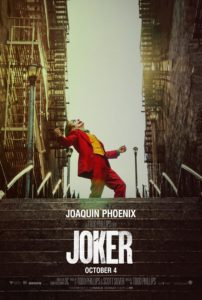 It has been said that a hero is nothing without a good villain. Lacking a proper antagonist to stand in the way of the hero’s journey, the hero’s eventual triumph isn’t as satisfying. Modern myth has produced many gripping hero/villain conflicts, but few match the intensity and poeticism of the ongoing battle between the iconic DC Comics hero Batman and his arch-nemesis, the Joker.
It has been said that a hero is nothing without a good villain. Lacking a proper antagonist to stand in the way of the hero’s journey, the hero’s eventual triumph isn’t as satisfying. Modern myth has produced many gripping hero/villain conflicts, but few match the intensity and poeticism of the ongoing battle between the iconic DC Comics hero Batman and his arch-nemesis, the Joker.
The Batman/Joker conflict has been explored, remade, revamped, and picked apart for years—and is still entertaining and compelling today (read more about it here in an article I wrote back in 2015 for the Joker’s 75th anniversary).
Director Todd Phillips adds another interesting facet to this decades-old conflict with his newest film, Joker—an intense character study that delves into the dark origins of the Clown Prince of Crime. Intended as a stand-alone film created outside of the current DC Extended Universe continuity, the film is an emotional tour-de-force that sucks the audience in almost immediately and never lets go until the very last frame.
Well-crafted and acted, Joker also has a lot to say spiritually. Gotham City is a terrible place and a reminder of our own individual relationship with sin.
SPOILERS AHEAD…NO JOKE!
The Good: An Engaging Portrait of Madness
My opinion of Todd Phillips’ body of work, which is mostly broad comedies, is indifference. The Hangover films, his most well-known movies, never really appealed to me. It was the title character got me in the door to Joker and I was trepidatious at first about what kind of movie this gross-out comedy director could make out of such an iconic villain. But Joker is most definitely Phillips’ finest film.
Joker was a well-crafted psychological potboiler that slowly ratchets up the intensity like a simmering burner on a stove—never letting up at all in the process. It had some great setup and payoff. Events that the film touched on, as random as they seemed at the moment, built up to the climax expertly.
Every frame of the film was filled with an almost overwhelming sense of tension and dread. As the film descended deeper and deeper into Arthur Fleck’s transformation into the Joker, I didn’t know where the film was going, and that genuinely excited me and brought out those emotions naturally. Many expectations that I had were thrown out as the narrative became more and more complicated. The descent never stopped until the film’s catharsis when Arthur, as Joker, savagely murdered talk show host Murray Franklin (Robert De Niro) on live television.
Adding to the dread and tension was a screen constantly filled with what I can only describe using astronaut Buzz Aldrin’s description of the moon: magnificent desolation. The Gotham City of Joker is a grimy, claustrophobic, crime-ridden hell hole, and the art direction made the audience really feel it; I could almost smell it. Phillips was looking to emulate the gritty New York City of films like Taxi Driver, The King of Comedy, and The French Connection (it isn’t surprising that Robert De Niro, the star of two of the three aforementioned films, was given a role in Joker as an homage). The city, the people, the buildings all looked lived-in and tired—ready to erupt into a blaze of chaos at the drop of a hat.
At the center of all this expert tension-building was Joaquin Phoenix as the title character, who gave the best performance I’ve seen of his career. Phoenix both figuratively and literally transformed himself into Arthur Fleck, and his performance virtually carried this film. Phoenix twisted his body into a thin, grotesque-looking man that added to the unsettling nature of the film. It was almost as if he was channeling Heath Ledger’s version but without Christopher Nolan’s cinematic gloss. If it was any other actor, I don’t think it could have worked as well.
Phoenix’s Joker was simultaneously sympathetic and unsympathetic, which made the character very interesting. He was, ultimately, a monstrous villain, but we are made to at least understand the monster on some base level by seeing his struggles with mental illness, which Phoenix emulated very well. However, the film made it very clear that Joker was definitely not someone to emulate or perceive as any kind of hero. It wasn’t one of those “good bad guy” stories like The Godfather. This was a tragic downward spiral into madness and chaos.
The emotional and thematic spine of the film was held together by the eerie and unsettling musical score by Icelandic composer Hildur Guðnadóttir. According to Todd Phillips, the score was composed before the movie was shot and played on the set during key scenes to inform the performances—and boy does it show. A huge percentage of the emotion of the scenes was in the music. It was a perfect internal reflection of the unfolding story, full of dissonant melodies, cutting strings, and dark instrumentation. There was also a playfulness at times—a touch of comedy to serve as an ironic counterpoint to the darkness onscreen. I really hope she gets more opportunities in film because of this brilliant work.
The Bad: A Lesson in Continuity
My biggest complaint about this movie was a high-level artistic choice made by Todd Phillips and Warner Bros. to leave Joker out of the existing DC Extended Universe (DCEU). Joker isn’t a reboot. It’s in this ether where it’s simply on its own or, as Phillips pitched it, part of a new label of DC films that are director-driven, arthouse takes on DC characters that aren’t part of the established cinematic continuity.
I found this particularly frustrating, especially since the DCEU has had so many ups, downs, and tonal restarts since it began, and I thought they were on the right track with Shazam! It’s now clear that Warner Bros. has absolutely no idea what they are doing and no vision—just flinging things at the wall and seeing what sticks. To the average moviegoer, this has got to be at least a little confusing—especially since Warner Bros. is continuing to make more films that acknowledge the DCEU continuity.
Joker could have easily been part of the DCEU, which makes the situation all the more frustrating. Thomas Wayne could have been played by Jeffrey Dean Morgan, the actor who played the character in Batman v Superman: Dawn of Justice. The young Bruce Wayne in Joker could easily pass for the BvS version (there’s even a similar hairstyle). Perhaps Arthur Fleck was the mentor to Jared Leto’s Joker. It could have been Fleck who murdered Robin, which would have possibly incited the Ben Affleck Batman to kill Fleck and have Leto’s Joker take over the mantle.
If there is one thing that chafes me more about a movie than a break in continuity, it’s deliberate ambiguity. Like creating “elseworlds” and rebooting franchises after gaps of single-digit years, it just seems lazy. Ambiguity is also an attempt to some pseudo-intellectualism on a film—awkwardly asking the audience to complete the narrative the storyteller is supposed to end. It didn’t work in films like Cast Away or Inception—both of which didn’t need it—and it wasn’t necessary for Joker, either.
As compelling as the narrative was, Joker contained several ambiguous moments that made the viewer question whether key points in the story actually happened. These weren’t the brilliant moments that turned the story on its head like Arthur’s scenes with his love interest that ended up being all in his mind. It was moments like the very end of the film, where the audience sees Arthur inside Arkham Asylum without makeup and away from his throngs of followers—which instantly called into question everything that had happened previously. It didn’t work and added a frustrating non-coda to a film that should have ended with the previous scene in the burning streets of Gotham.
Finally, the murder of Thomas and Martha Wayne at the end of Joker could have been eliminated entirely and it would have been a stronger film for it. It isn’t that it messed with the established continuity; it just wasn’t necessary to get the film’s point across and muddled the themes of Batman’s origin. The Batman tentpoles were happening way too quickly to be believable, and it effectively changes the dynamics and motivations of Batman that make him so compelling.
The Stairway to Heaven
Joker derived its themes from many sources in the Batman canon, especially the one-shot comic, The Killing Joke. In that seminal work, the Joker articulated his raison d’être: that the entire world—with all its rules, morality, and niceties—is one big joke, and he exists there to prove it to everyone. Arthur Fleck’s transformation into the Joker was spurred, in part, by a similar descent into nihilism—that there is no hope, no reason for life, and there is no need to adhere to society’s rules because everyone is terrible.
As mentally disturbed as he was, Arthur was a man seeking the material when he should have been seeking the spiritual. His genuine human needs to be noticed and wanted metastasized into an obsession with being liked and admired by people, including Murray Franklin. In the end, Arthur chose to embrace his darker urges and become the Joker—and the film provided a brilliant visual metaphor that represented Arthur’s descent into depravity.
As part of his daily routine at the beginning of the film, Arthur walked up a large flight of stairs on his long walks back home from work. His ascension was slow and exhausting, as if it crystalized his daily struggle through life. Near the end of the film, in his full Joker getup, Arthur danced gleefully down the stairs with little effort. At that point, he was off his meds, accepting his station as a killer and an anarchistic force, and finally “free” from the shackles of his facade of sanity.
Arthur willingly chose the easy path of destruction, walking down the stairs toward a hellish existence because it was easier. He accepted that the world is a depraved place and he was now joining the parade—wreaking his own sick form of justice upon the city along the way.
“I killed those guys because they were awful. Everybody is awful these days. It’s enough to make anyone crazy.”
Even though the transformation was ultimately his choice, Arthur’s condemnation of the society in the film was not without merit. Gotham City was a truly nihilistic world and virtually all the people hinged their whole existence on material needs. The depravity knew no bounds or upheld any group as being more virtuous than the other. The rich (who ignored the plight of the poor) had just as much sin as the poor (who rioted and openly called for the murder of the rich).
“As it is written, ‘There is no one righteous, not even one; there is no one who understands, there is no one who seeks God. All have turned away, they have together become worthless; there is no one who does good, not even one.'”
—Romans 3:10-12
I appreciated that aspect of Joker because, in its own exaggerated way, it was displaying a bold truth of humanity: everyone is a sinner and has fallen short. Everyone. We all have the capacity to do terrible things—rich, poor, black, white, or any other material and eternally insignificant classification. Being poor or rich doesn’t afford anyone any moral authority over anyone else. We are all equally sinful.
As a consequence of living in this sinful world, each of us struggles with that “stairway of life” to varying degrees. Life, like walking up a flight of stairs, can be difficult. Doing what is right and good is also hard. In fact, Jesus said in the Book of Matthew that “wide is the gate and broad is the road that leads to destruction, and many enter through it.” (Matthew 7:13) It’s easy to simply give in to the sin of this world and participate in it—dancing our way down straight to hell.
And, like Arthur, we can blame society and our own life circumstances for our actions. But when the end comes, and God is on His throne judging us, there will be no one to blame but ourselves.
Unlike Arthur and Gotham City as a whole, we do have hope in this sinful world of ours. However, this hope doesn’t come from any human being, material wealth, or even our own capacity to do good. It comes from our Creator’s willingness to take on our individual depravity and wipe us clean of our sin through the blood of Jesus Christ. True freedom doesn’t come from a lack of or open contempt for the rules, but from submission to God and the forgiveness of sins.
Joker has received some unfounded blowback from various mainstream media outlets, citing things like the film’s violence as shocking and worse than anything seen before. However, the film’s violence, while stark and unsettling, isn’t any more gratuitous than many films out today. Perhaps the reason for some of this blowback is that this adaptation hits a little too close to home in pegging the problems with today’s culture.
The Last Word
Joker was an interesting take on one of the most infamous fictional characters ever created. Anchored by an amazing performance and some really top-notch directing and world-building, I enjoyed every tense, unsettling moment.
In this world of sin, the struggle to do good can be difficult—with people seemingly all around us rejecting what is good in favor of their base, sinful nature. It’s a long set of stairs that climb to heaven, and the journey can be tiresome. But we have an Advocate with our Creator who came to help us with that uphill journey and keep us from descending into the pit of depravity. We can either embrace the chaos and become sinful clowns dancing down those stairs or turn to the light of hope found in Jesus.
“I have told you these things, so that in me you may have peace. In this world, you will have trouble. But take heart! I have overcome the world.”
—John 16:33


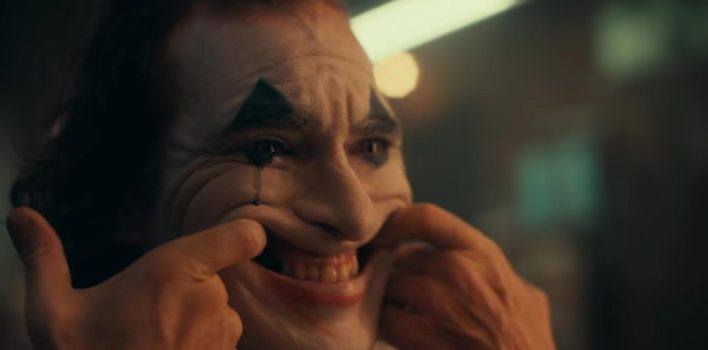

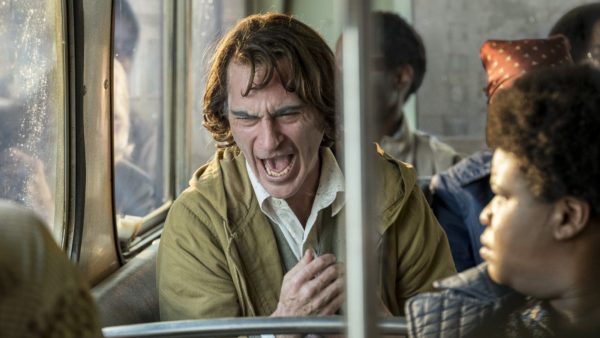
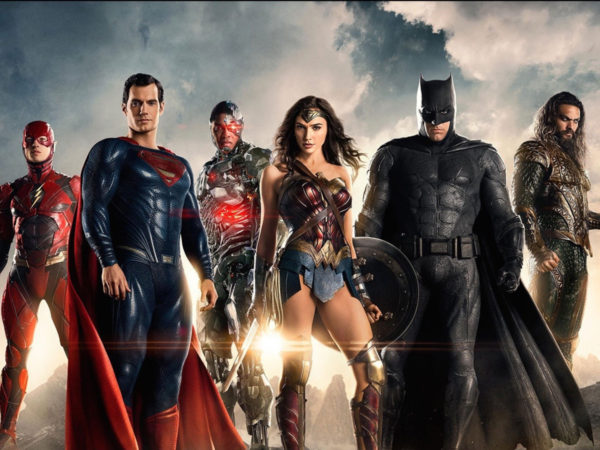
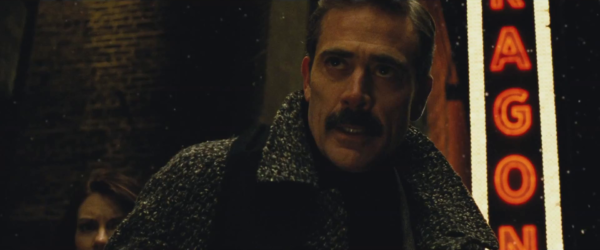
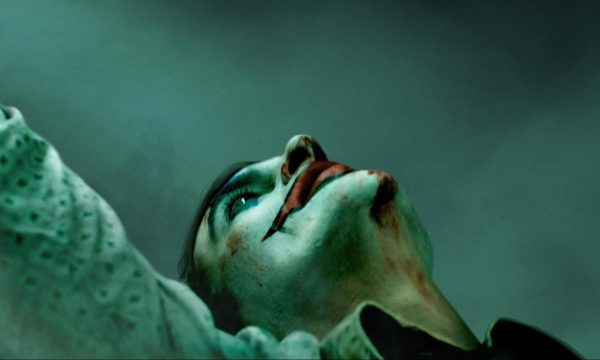
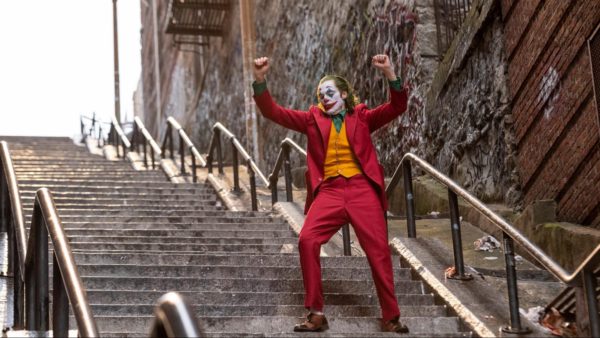
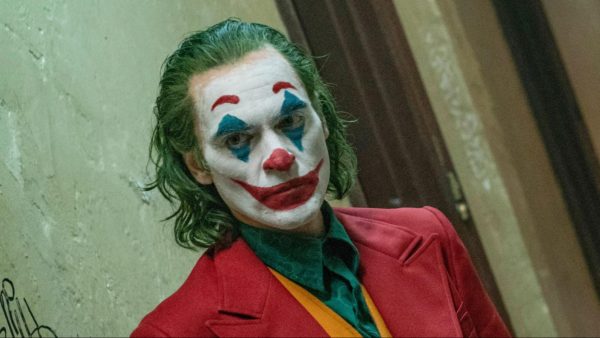
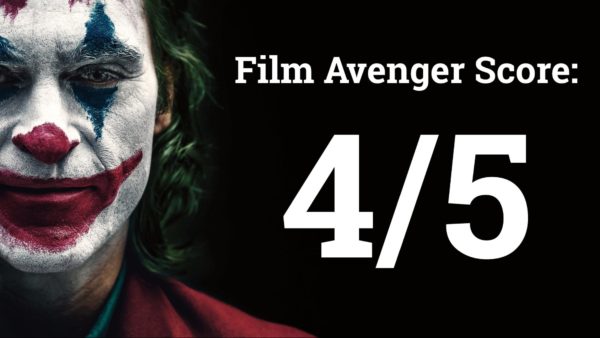
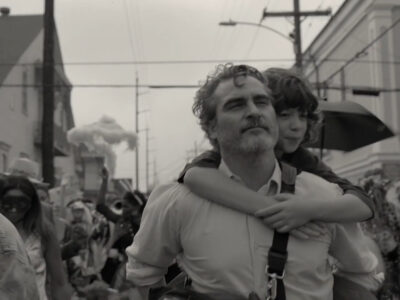
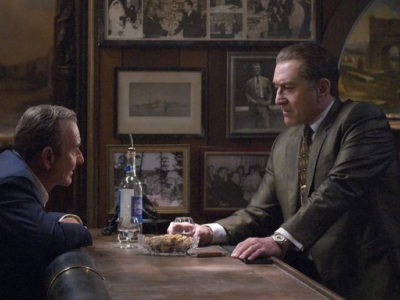
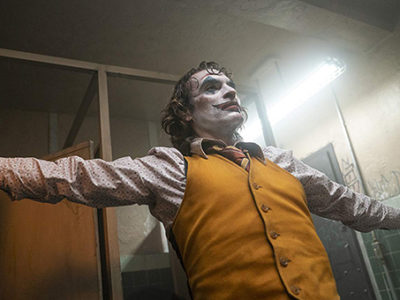


Pingback: S07 E01 – Joker and the Final Joke | Reel World Theology